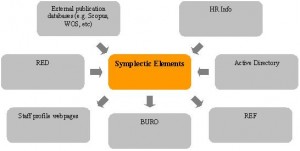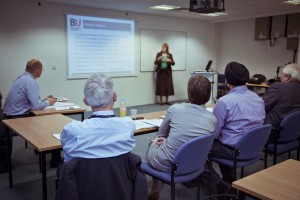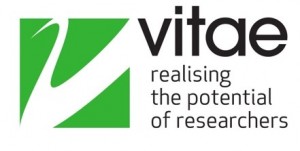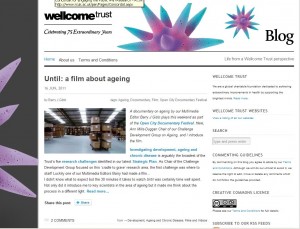 I’d like to introduce you to Symplectic Elements – our soon-to-be new research management system. You might have heard colleagues talking about Symplectic Elements for a while now – the supplier (Symplectic Ltd) first visited BU to demonstrate the application in August 2009. I’m pleased to announced that we have now signed the contract with Symplectic and are in discussions with the supplier to determine the implementation plan. The aim is to have the system up and running this autumn.
I’d like to introduce you to Symplectic Elements – our soon-to-be new research management system. You might have heard colleagues talking about Symplectic Elements for a while now – the supplier (Symplectic Ltd) first visited BU to demonstrate the application in August 2009. I’m pleased to announced that we have now signed the contract with Symplectic and are in discussions with the supplier to determine the implementation plan. The aim is to have the system up and running this autumn.
Symplectic Elements is already used by lots of other UK universities, including Imperial College, Oxford, Exeter, Cambridge, UCL and Plymouth.
So what is Symplectic Elements and what benefits will it bring to BU? Symplectic Elements is a research management system. It will not replace any of our existing BU systems (such as BURO or RED) but it will link to them and join them together, sharing data between the systems. This means that BU staff will be able to add information to Symplectic Elements and it will be used in multiple systems. You will also be able to access research information from a single place. A single point of data entry will enable research information (such as publications data) to be automatically formatted and reused in other forums, such as in BU’s open access repository (BURO) and the BU staff profile webpages, without the need for duplicate or additional data entry. You will also be able to query data that appears to be missing or incorrect.
Symplectic Elements will provide academics with a simple ‘dashboard’ from which to view and manage their research information. This will also help when BU begins compiling data to meet the requirements of the REF.
How will Symplectic Elements link with the existing systems?
- Symplectic Elements will link to our Research and Enterprise Database (RED) so you can see your current bids and projects. From within Symplectic you will also be able to link yourself to the PGR students you supervise.
- It will link to BURO so that your research outputs are entered into the repository.
- It will also link to a number of external publication databases (including Web of Science and Scopus) and automatically search these for your publications. When it identifies a paper it thinks might be yours it will send you an email and ask you to confirm it is your paper. If it is then all you will need to do is to tick ‘yes’ and Symplectic will create a record of your publication automatically. You will simply need to add a full-text copy of the paper (copyright permitting) and it will be uploaded into BURO.
- Symplectic Elements will link to the new content management system and you will be able to choose which information is used on your staff profile webpage.
Timeframe for implementation: A broad steering group of representatives from across BU’s Schools and Professional Services has been formed to help feed into and guide the system’s implementation. A core project management group is currently overseeing the day-to-day tasks and will manage the initial data integration and checking. A meeting with the suppliers is scheduled for the end of the month. The system is due to go live in autumn 2011.
Further updates about Symplectic Elements will be posted on the BU Research Blog in due course!

 on Culinary Arts and Science
on Culinary Arts and Science


 The Annals of Tourism Research is rated a 4* journal in the
The Annals of Tourism Research is rated a 4* journal in the 
 The University Research and Enterprise Forum (UREF) agreed yesterday to expand the five working days internal deadline to applications made via the E-Gap2 and Leverhulme Online e-submissions systems. This will affect all applications made to the following funding bodies:
The University Research and Enterprise Forum (UREF) agreed yesterday to expand the five working days internal deadline to applications made via the E-Gap2 and Leverhulme Online e-submissions systems. This will affect all applications made to the following funding bodies: Academic staff will continue to be guided through the process and made aware of the internal submission deadlines by the CRE Operations team.
Academic staff will continue to be guided through the process and made aware of the internal submission deadlines by the CRE Operations team. Space travel has been in the news recently with the last space shuttle flight on the 8th July 2011 (
Space travel has been in the news recently with the last space shuttle flight on the 8th July 2011 (





















 Fourth INRC Symposium: From Clinical Applications to Neuro-Inspired Computation
Fourth INRC Symposium: From Clinical Applications to Neuro-Inspired Computation ESRC Festival of Social Science 2025 – Reflecting back and looking ahead to 2026
ESRC Festival of Social Science 2025 – Reflecting back and looking ahead to 2026 3C Event: Research Culture, Community & Cookies – Tuesday 13 January 10-11am
3C Event: Research Culture, Community & Cookies – Tuesday 13 January 10-11am Dr. Chloe Casey on Sky News
Dr. Chloe Casey on Sky News Final Bournemouth University publication of 2025
Final Bournemouth University publication of 2025 ECR Funding Open Call: Research Culture & Community Grant – Application Deadline Friday 12 December
ECR Funding Open Call: Research Culture & Community Grant – Application Deadline Friday 12 December MSCA Postdoctoral Fellowships 2025 Call
MSCA Postdoctoral Fellowships 2025 Call ERC Advanced Grant 2025 Webinar
ERC Advanced Grant 2025 Webinar Horizon Europe Work Programme 2025 Published
Horizon Europe Work Programme 2025 Published Update on UKRO services
Update on UKRO services European research project exploring use of ‘virtual twins’ to better manage metabolic associated fatty liver disease
European research project exploring use of ‘virtual twins’ to better manage metabolic associated fatty liver disease